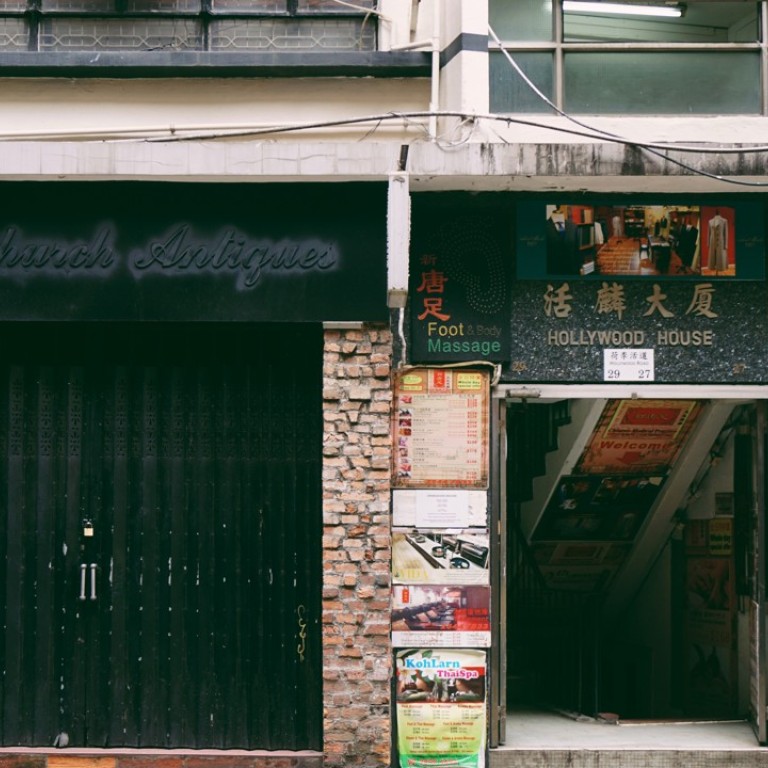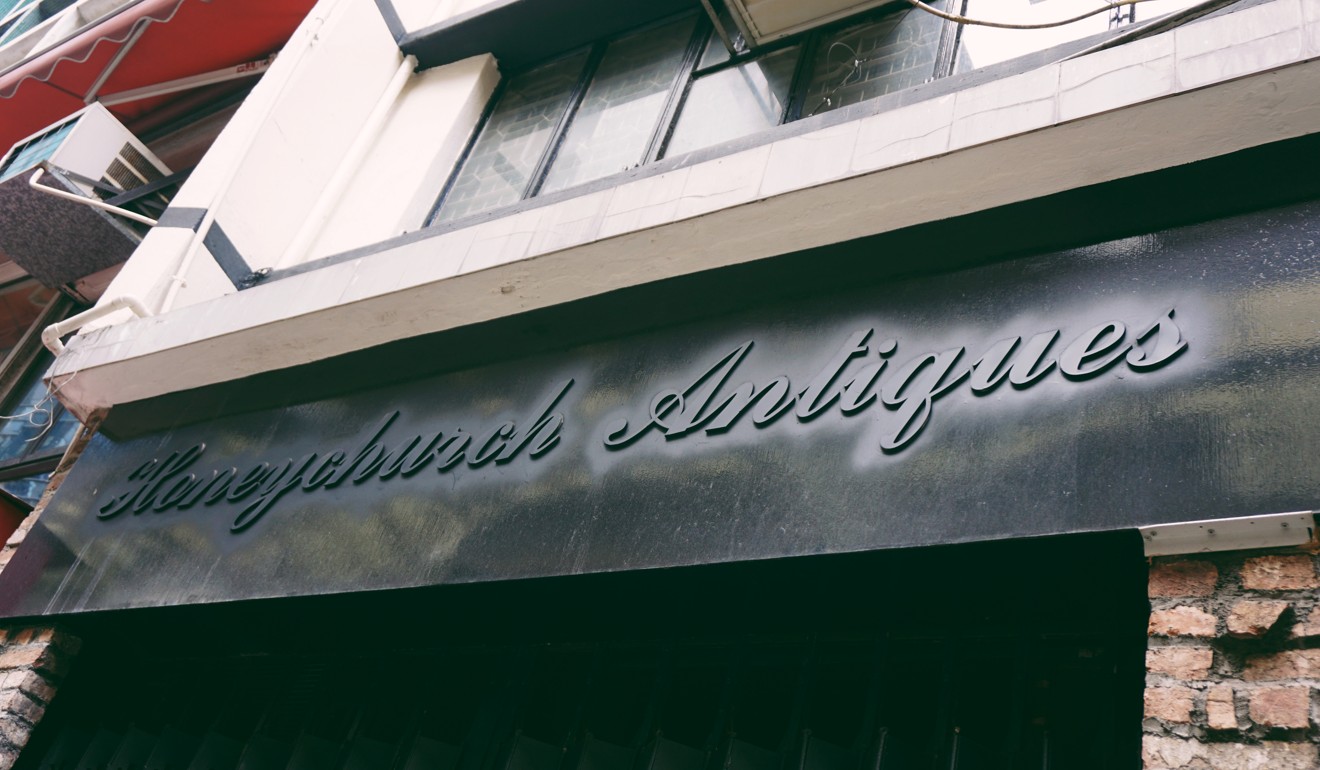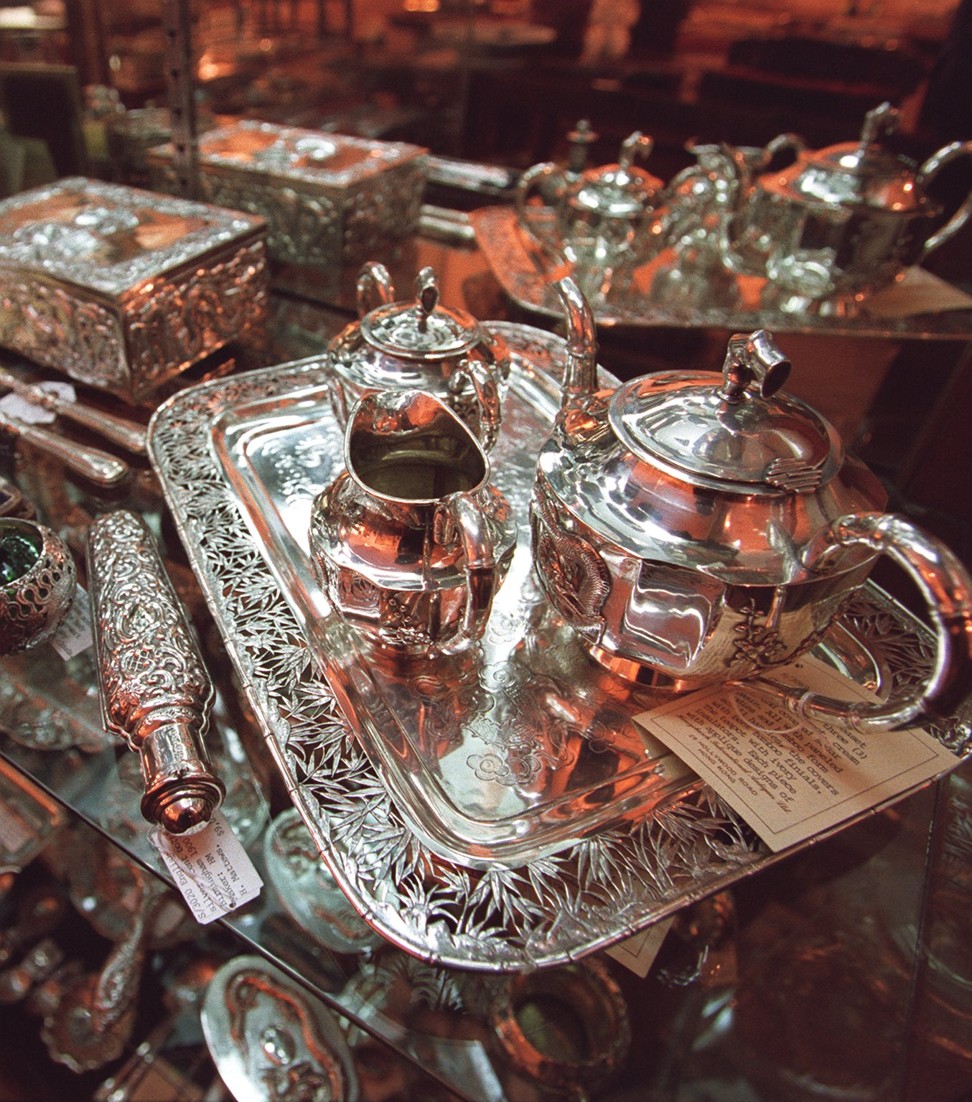
Out with the old in Hong Kong’s Hollywood Road as the antiques trade falls on hard times
It’s a place where merchants have sold artefacts since the start of the colonial era in 1841, but rising rents and changing tastes have taken their toll
Walking down the western tip of Hollywood Road is a step back into a Hong Kong that has long since been replaced by gleaming skyscrapers and high-end restaurants. It is home to an array of eclectic antiques shops that each contribute their own unique colour to the vibrant tapestry of the street.
Items on sale range from Maoist memorabilia to Chinese dynastic antiques, Tibetan rugs and even seemingly out-of-place Western antiques. Visitors can peruse the alleyway stalls with their random collections of trinkets, or fork out money for authentic fare in the shops.
Hollywood Road is the second oldest street in Hong Kong, built at the founding of the colony in 1841. It arose as a place where foreign traders and merchants would sell artefacts they “collected” in mainland China before making their way towards Europe. Another surge in antique ware came after the Cultural Revolution from 1966 to 1976, when Chinese Communist Party cadres sold their antiques on Hollywood Road to make the money needed for industrialisation and economic reform.
“There used to be a lot of antiques illegally taken out of China when the country first opened up in the 1980s, but these days most of the so-called antiques sold are replicas or non-antiques [vintage items] dating back to no more than the early Republican period,” said Dr Lee Ho-yin, associate professor and head of the division of architectural conservation at the University of Hong Kong.
At its height in the 1980s, the stretch of Hollywood Road was home to over 100 antique shops, but 40 years later, only a handful remain.

Honeychurch Antiques, previously at 29 Hollywood Road, first opened its doors in 1967. Wedged between a pizza parlour and a foot massage place, right under Hong Kong’s lengthy escalator, the products sold ranged from Japanese lacquer screens and Chinese tea sets to Thai Buddhas.

“Imagine the Ye Olde Antiques Shoppe sign over an old dusty London shop 50 years ago and you get the idea.”
But ever-increasing rents have slowly been pushing small stores out of business. Fairman noted that “by the mid-90s you started to see shop after shop disappear”.
Young people are no longer attracted to antiques ... they don’t have room for them in the houses they live in
“For 40 years my parents had a landlord that had come across the river to escape the communists in 1949,” he said. “He understood hard-working small businesses and our rent would go up by a modest 2-3 per cent every two years. In fact when Sars [severe acute respiratory syndrome] hit Hong Kong he called us and asked if he could lower the rent by 30 per cent knowing business in Hong Kong had fallen off by that much.”
Unfortunately, the old landlord died four years ago. Within weeks, his children took over and rent went up by 70 per cent in one year, and 40 per cent the next. At this point, Honeychurch Antiques, like many stores before it, was faced with few options, and after hanging on for as long as it could, the business had to close and move online.
“[The downfall of antique sales is] essentially the perfect storm of a modernising world. Young people are no longer attracted to antiques, they cannot afford the pursuit, they don’t have room for them in the houses they live in,” Fairman said.
“When I got into the business, far off cultures held a fascination for people as they were difficult to get to. Today exotic travel is relatively attainable for all and everything is a touch away on your iPhone.
“Housing is smaller and antiques require an investment in reading or at least learning something about the culture that produced the antique you may be considering, as knowledge enhances the enjoyment of an object. Young people don’t think they have the time or want to spend their time reading or learning about the history of what they have purchased.”
Dr Gesa Schwantes, director of the architectural conservation laboratory at the University of Hong Kong’s division of architectural conservation programme, said: “There are two levels to the significance of antique sales on Hollywood Road.
“Firstly, the history of the antique selling and buying, and secondly, the aspect of generally having this street as a kind of character-defining element of the district.”
Honeychurch Antique’s eloquent white sign has since been painted over and its black gate will now forever remain shut to the ever-changing world outside.
As Hollywood Road continues to gentrify and expand its repertoire of stores, the decline of its era as an antiques neighbourhood symbolises a loss of an emblematic symbol of Hong Kong’s heritage.

